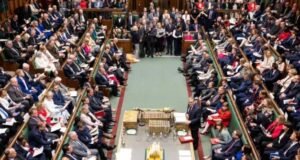 The UK economy grew by 0.6% in the three months to the end of June, as economic growth accelerated in the run-up to the vote to leave the EU.
The UK economy grew by 0.6% in the three months to the end of June, as economic growth accelerated in the run-up to the vote to leave the EU.
Second-quarter gross domestic product grew faster than expected, and was up from 0.4% growth in the previous quarter, the Office for National Statistics (ONS) said.
Any uncertainty ahead of the referendum seemed to be “limited”, the ONS said.
On an annual basis, growth was 2.2%, helped by a surge in manufacturing.
ONS chief economist Joe Grice said: “Continued strong growth across services, particularly in retailing, reinforced by healthy growth in the manufacture of cars and pharmaceuticals, boosted output in the second quarter.
“Any uncertainties in the run-up to the referendum seem to have had a limited effect. Very few respondents to ONS surveys cited such uncertainties as negatively impacting their businesses.”
Manufacturing output grew at 2.1% in the quarter, which was its “best gain since 1999”, said Neil Wilson, an analyst at ETX Capital.
The services sector, the largest part of the UK economy, grew 0.5%, while construction and agriculture fell 0.4% and 1% respectively.
Economic growth was strongest in April before easing off in May and June, the ONS figures show.
This is the first calculation of second-quarter economic activity and is based on less than half the data that will give the eventual figure.
The best quality data covers the earliest part of the quarter, but June’s figures are based largely on forecasts.
Economists, including those at the Bank of England, had estimated second-quarter growth would be about 0.5%.
“It’s always difficult to tell where you’re going by looking in the rear-view mirror, and as such today’s GDP figures can’t be taken as evidence of the current climate,” said Ben Brettell, senior economist at Hargreaves Lansdown.
“However, what they do show is an absence of pre-Brexit concerns, meaning that if the forecast downturn does materialise, at least we start from a position of relative strength.
A business survey last week suggested there had been a sharp fall in economic activity in the weeks after the referendum.
 Weekly Bangla Mirror | Bangla Mirror, Bangladeshi news in UK, bangla mirror news
Weekly Bangla Mirror | Bangla Mirror, Bangladeshi news in UK, bangla mirror news







